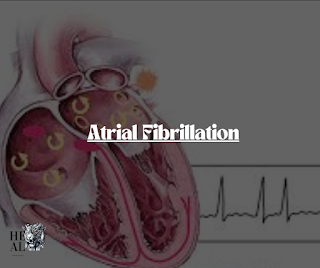Atrial Fibrillation
Atrial Fibrillation (AFib) Overview
Atrial fibrillation (AFib) is a heart condition characterized by an irregular and often rapid heart rhythm, known as an arrhythmia. This irregular heartbeat can lead to the formation of blood clots in the heart, increasing the risk of complications such as stroke, heart failure, and other cardiovascular issues.
Symptoms
- Feelings of a fast, fluttering, or pounding heartbeat, referred to as palpitations.
- Chest pain.
- Dizziness.
- Fatigue.
- Lightheadedness.
- Reduced ability to exercise.
- Shortness of breath.
- Weakness.
Some individuals with AFib may not experience any noticeable symptoms.
Types of Atrial Fibrillation
Occasional (Paroxysmal) AFib: Symptoms come and go, lasting from minutes to hours or sometimes even weeks. Treatment may be necessary for some individuals.
Persistent AFib: The irregular heartbeat is constant, requiring medical intervention to restore normal rhythm.
Long-standing Persistent AFib: Continuously present for over 12 months, requiring medications or procedures for correction.
Permanent AFib: Irregular rhythm cannot be reset, necessitating medications to control heart rate and prevent blood clots.
Causes
AFib occurs due to disruptions in the heart's signaling process. Common causes and risk factors include:
- Heart diseases such as congenital heart defects, sick sinus syndrome, or heart valve disease.
- Conditions like obstructive sleep apnea, heart attack, or high blood pressure.
- Lifestyle factors including excessive alcohol or caffeine consumption, smoking, or certain medications.
Complications
Serious complications of AFib include the formation of blood clots, which can lead to strokes. Other health conditions, such as high blood pressure, diabetes, or heart failure, can further elevate the risk of stroke in individuals with AFib.
Prevention
Adopting a heart-healthy lifestyle can help reduce the risk of heart disease and AFib. Key preventive measures include:
- Managing high blood pressure, cholesterol levels, and diabetes.
- Avoiding tobacco use.
- Following a balanced diet low in salt and saturated fat.
- Engaging in regular physical activity.
- Ensuring adequate sleep and managing stress levels.
- Maintaining a healthy weight.
By prioritizing these lifestyle factors, individuals can decrease their risk of developing AFib and improve overall heart health.

